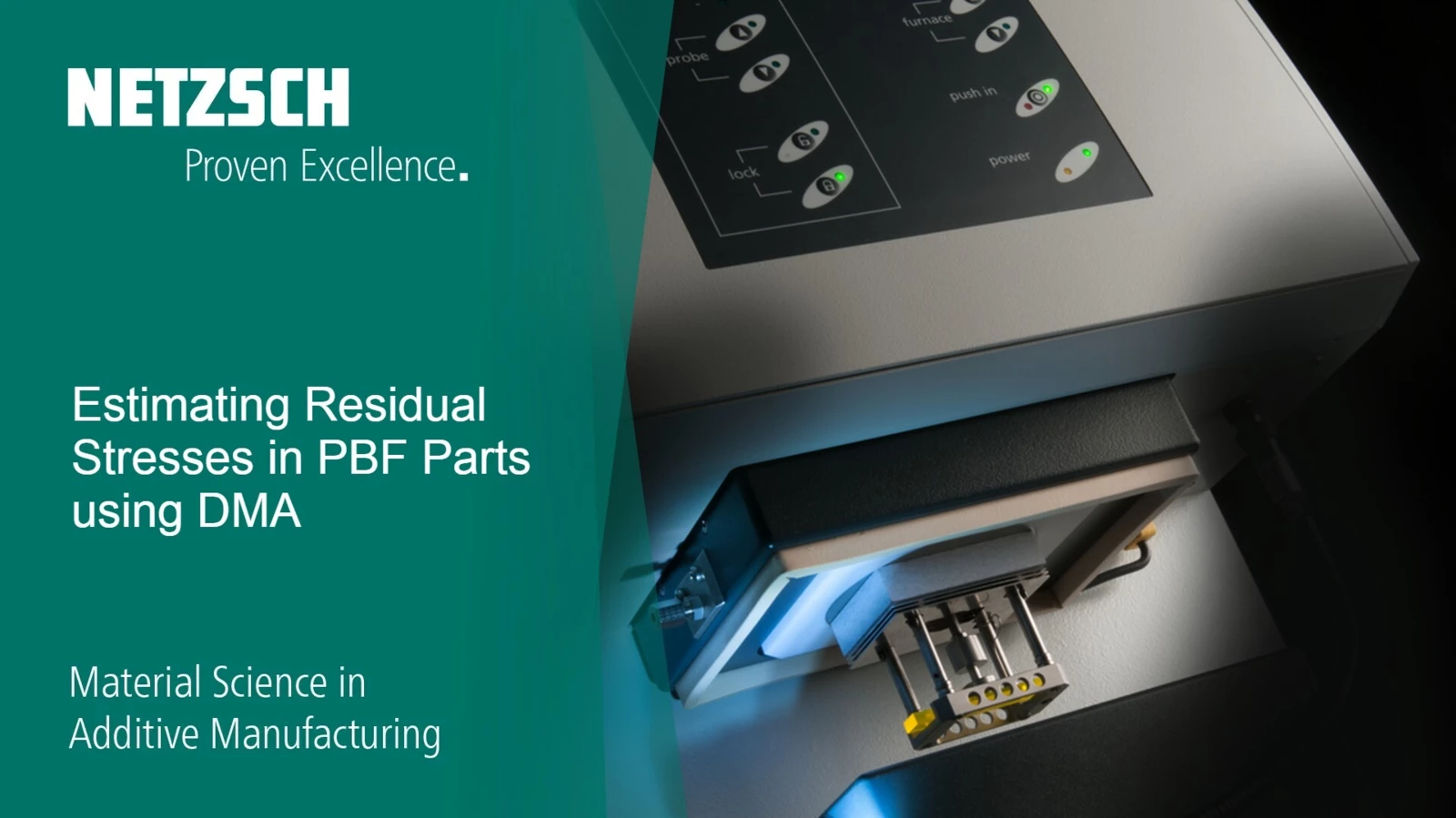
22.09.2021 von Aileen Sammler, Dr. Natalie Rudolph
Material Science in Additive Manufacturing: Estimating Residual Stresses in PBF Parts Using Dynamic Mechanical Analysis
In our last episodes, we focused mainly on thermal material behavior measured with Differential Scanning Calorimetry (DSC). Today, Dr. Nathalie Rudolph will talk about how residual stresses can be estimated using Dynamic Mechanical Analysis (DMA).
This week’s topic: Estimating Residual Stresses in PBF Parts using DMA
We use Dynamic Mechanical Analysis (DMA) to measure the temperature-dependent viscoelastic properties of a material and determine its modulus of elasticity and damping values by applying an oscillating force to the sample.
Learn about:
- What is happening in a process when a material starts to cool and solidify
- Imbalanced shrinkage and warpage behavior of plastic parts
- The effect of modulus in the selective laser sintering (SLS) process
- Using the DMA 242 E Artemis® to deform a sample and find out how it reacts regarding temperature-dependent modulus, glass transition, thermal stability, effect of fillers, mechanical response below 0° C and many more

FREE E-Book
Thermal Analysis and Rheology in Polymer Additive Manufacturing
Discover the secrets behind AM's game-changing capabilities! Our newly released ebook delves deep into the heart of AM, unveiling the power of reliable material characterization techniques, specifically thermal analysis and rheology.
More Additive Manufacturing applications by NETZSCH
In our next episode, we will talk about warpage prediction of PBF parts using CTE.